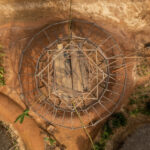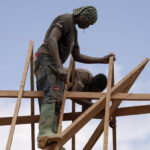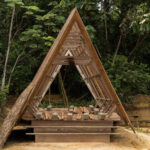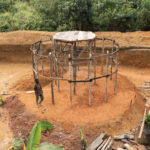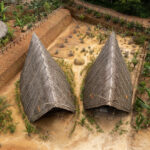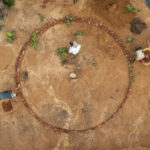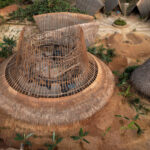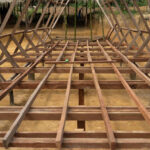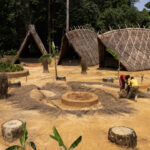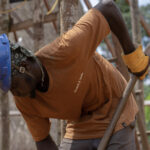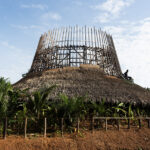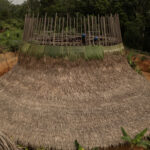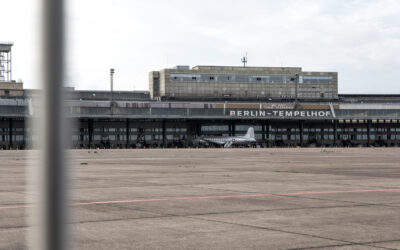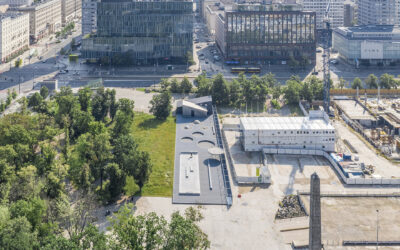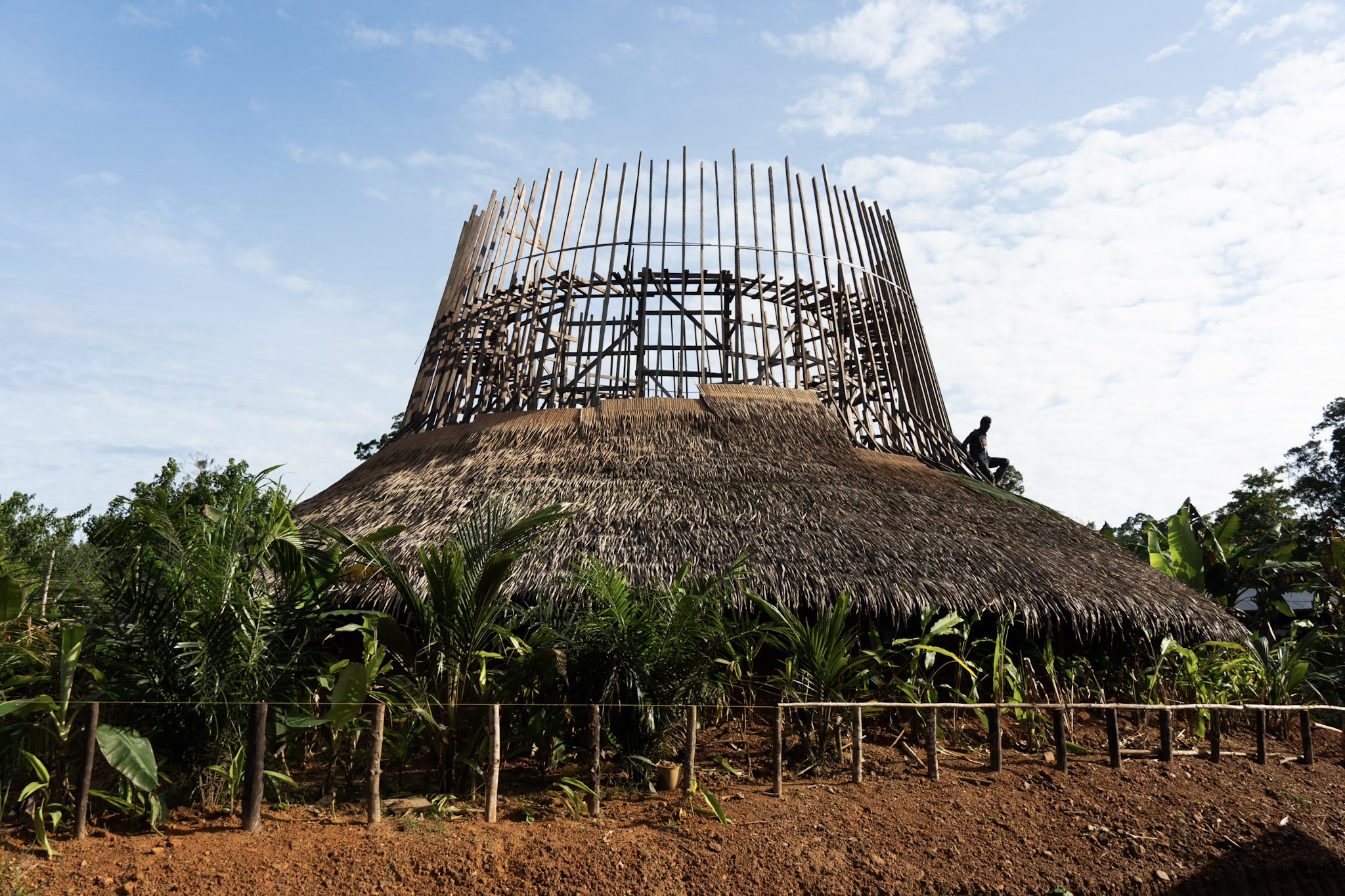
The initiative started in 2012 by an idea of the architect Arturo Vitturi to build a sustainable and resilient system to provide water where there is the need. Since then it has been designed, implemented, and constructed several prototypes on different scales to test various aspects of the project. In 2015 an important milestone, the construction of the first pilot in Dorze, Southern Ethiopia. In 2019 the second pilot has been constructed in Cameroon, in the South Region.
The Warka Tower is a passive structure, it functions only by natural phenomena such as gravity, condensation & evaporation. Easy to maintain it is operated autonomously by the villagers. The design depends on the local environment: meteorological conditions, site geomorphological characteristics, local indigenous culture, natural materials available.
The name ‘Warka’ comes from the Warka Tree, which is a wild large fig tree, endemic to Ethiopia. It has an important symbolic value, it is the center of the local community, fundamental for the local ecosystem, and offers a gathering place. Moreover, it has also a spiritual meaning, were to pray for God.
The Warka Tower has been the starting point of a wider project: Warka Water Inc, a registered nonprofit association that aims at providing clean water, sanitation, and housing to the people in need, by building infrastructure and facilities, providing technical training for construction, operation, and maintenance, and creating educational programs for sanitary and hygiene practices.
Warka Water inc promoted projects like the Warka Village, an integrated community designed to host up to 100 people, from Pygmies and other local ethnic, in need to live with dignity. An example of collaboration with the local community, on how to construct using indigenous techniques and local natural materials that respect the cultural identity of the place.
Besides the tower and the village other projects within Warka Water inc are:
- Warka house: a sustainable residential unit built with local natural materials, inspired by traditional African houses
- Warka sanitation: provides safe water for personal hygiene and adequate latrines
- Warka kitchen: a common space for the community for food preparation (cooking) in a safer and controlled environment
- Warka clinic: provides access to basic quality and affordable health care merging modern and traditional medicine practices of the indigenous people
- Warka garden: provides food for the community. The vegetables can be sold to the local market so it can also be a source of revenue for the community.
- Warka solar: provides electrical energy from sunlight. This can bring a big change in community lifestyle, giving the chance to practice activities after the sunset as well as to recharge devices such as mobile phones
- Warka storage: it is the community food storage for the preservation of dry grains, roots, tubers, bananas, and plantains.
Recommended by Luisa Bravo
Main source: https://warkawater.org
